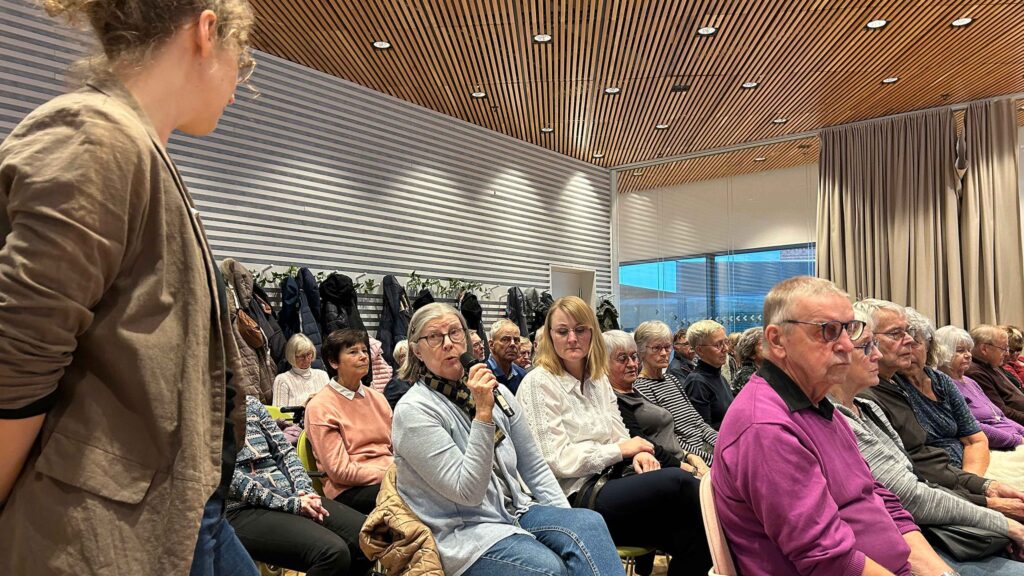The mental health of older adults is frequently overlooked, despite this age group having the highest proportion of individuals using antidepressants. Discussions are often shaped by preconceived notions, while the voices of older adults are less often heard. To capture a range of perspectives, the EU Re-MEND project hosted three science cafés across Sweden in the autumn, focusing on the mental health of older adults.
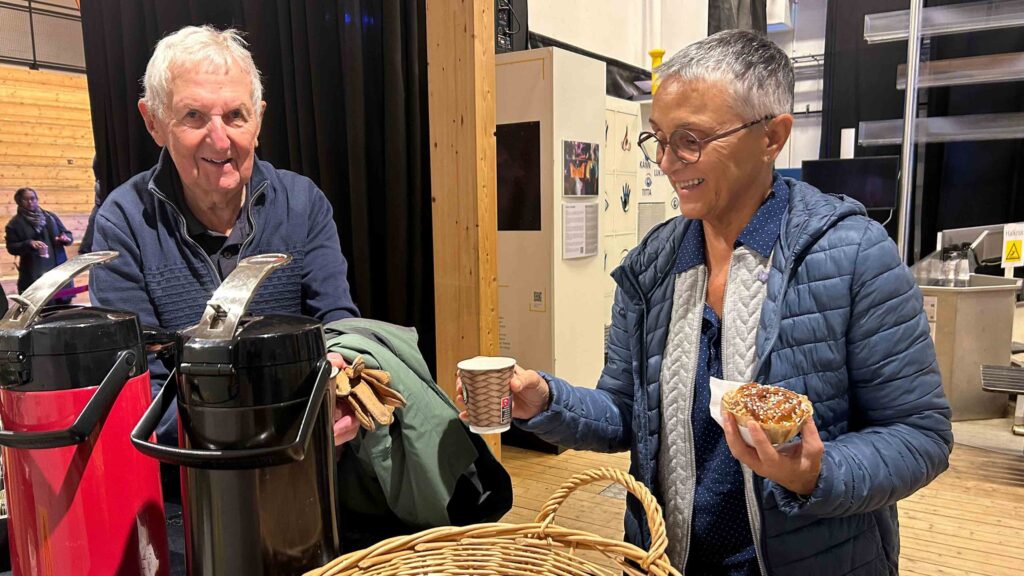
Re-MEND is an interdisciplinary Horizon Europe project aimed at generating new knowledge on the prevention of mental health issues during vulnerable stages in life and reducing stigma associated with mental health problems.
This autumn, Public & Science Sweden organised science cafés in three towns in different parts of Sweden: Lund, Botkyrka, and Umeå. At the heart of a science café is dialogue and exchange between researchers and the public. Researchers have the opportunity to present their work and receive feedback, while the public can learn about ongoing research and shape researchers’ perspectives on what research is needed.
In addition to these three events, ReMEND has also held focus group discussions with mental health experts. The insights gathered from these discussions will be used to shape the next stages of the project.
Older people count too
At Vattenhallen science centre in Lund, Håkan Jönson, a professor at the School of Social Work at Lund University, spoke about ageism and society’s view of older adults under the title ”To be counted or excluded – some thoughts on ageism.” He emphasised the importance of older adults, both in research and in the eyes of society, being seen as more than just ”old people.”
“You don’t lose your identity as you age. You must be treated for who you are in all your complexity, even as an older person,” said Håkan Jönson.
Older individuals with long-term mental health issues themselves highlight the need for an active and social life, as well as safe places.
Carina Tordai, an occupational therapist in geriatric psychiatry and a PhD student at Lund University, talked about her research on the positive effects of social meeting places and how older individuals with long-term mental health issues emphasise the need for an active and social life as well as safe spaces.
“It is particularly important to have some form of continuous contact, so that there is someone who questions where you are if you don’t show up where you’re expected,” said Carina Tordai.
The audience, consisting of older adults, individuals active in advocacy organisations, researchers, and clinicians, shared personal experiences and asked questions about the progress of research. The question of how researchers can disseminate their knowledge to the public and decision-makers was raised. Both researchers and the audience emphasised the importance of collaboration between researchers and the broader society, on multiple levels, as well as the value of knowledge exchange. Both the audience and the researchers also touched upon geriatric psychiatry and the need for specialised interventions related to mental health for older adults.
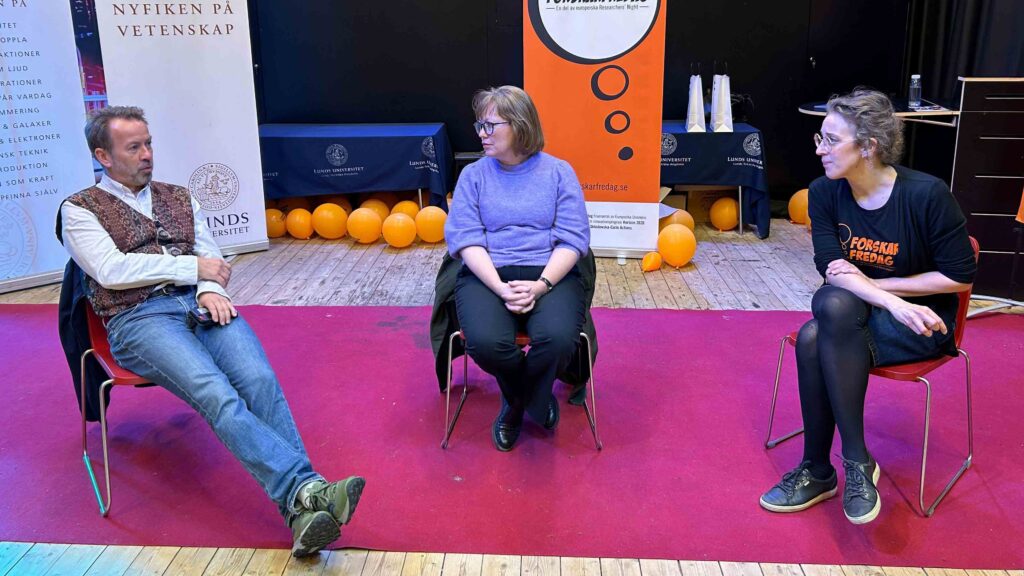
Difficulties accessing activities for the oldest
The next science café took place in October at Folkets Hus cultural centre in Botkyrka. Carin Lennartsson, a researcher in gerontology and Director of the Aging Research Center at the Karolinska Institute, participated. She spoke about loneliness and mental health issues in the older population, based on a nationwide survey of older adults’ living conditions (SWEOLD), and what the study has explored regarding social participation, loneliness, health, health inequalities, social and economic living conditions, extended working life, retirement, and health.
Living alone is not the same as feeling lonely.
“Most people over 75 don’t feel chronically lonely. But the subject attracts a lot of media attention, which can give a skewed image. Living alone is not the same as feeling lonely,” stressed Carin Lennartsson.
The importance of staying active was emphasised by many in the audience, but several challenges faced by the oldest people in society were raised during the discussion.
“If you’re 90, you might have a family member who is retired and helps you, but not everyone has that,” said one participant. “It can be difficult to get around your local municipality. We would like to see a flexible transport service here.”
Also present in Botkyrka was Ivan Nalvarte, associate professor at the Division of Neurogeriatrics at the Karolinska Institute, who is involved in the Re-MEND project. Among other things, he studies how sex hormones influence the risk of developing neurological diseases such as depression and Alzheimer’s.The discussion with the audience revolved around the societal support needed for older adults to lead active lives, which several participants highlighted as essential for maintaining mental health.
“Botkyrka is a fantastic municipality for older adults,” said one participant. “For example, during Senior Week in September, where community organisations are present, there are free activities that everyone can participate in.”
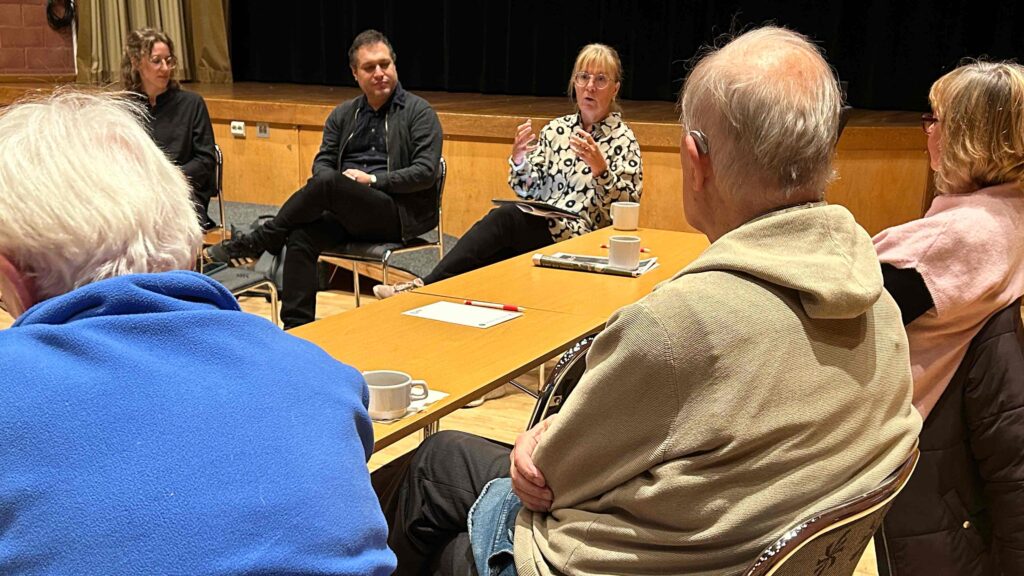
Physical activity reduces depression
The third science café took place in a packed room at the Väven cultural centre in Umeå. Erik Rosendahl, professor of physiotherapy at the Department of Public Health and Rehabilitation, Umeå University, and Helena Fridberg, a researcher at the same institution, spoke about how physical activity for older adults can prevent and reduce conditions like depression and dementia. They also presented plans for a new study on how advice and research findings about physical health can be implemented to support the introduction of physical exercise for more older people in society. Erik and Helena emphasised the need for collaboration between researchers and society to improve health in a sustainable way over time.
The topic of physical activity for mental health engaged many in the audience.
“I’m a fairly newly retired pensioner,” said one participant, “and right now there are so many activities, it’s hard to find time for them all. But what happens when I get pain and am too afraid to go anywhere? Because I’m scared of slipping or maybe have a bad hip. How does that affect exercise? Maybe it’s these people who need it the most, not us newcomers to retirement.”
Anna Oudin, an epidemiologist and statistician at the Department of Public Health and Clinical Medicine, Umeå University, brought up air pollution as a risk factor for the aging brain.
Increased air pollution can have a negative effect on mental health.
Her research within Re-MEND indicates that increased air pollution can have a negative effect on mental health, but Anna Oudin stressed that we don’t know enough yet.
“The findings should be seen as a basis for driving changes at the societal level; as an individual, you don’t need to adapt your behaviour or be afraid.”
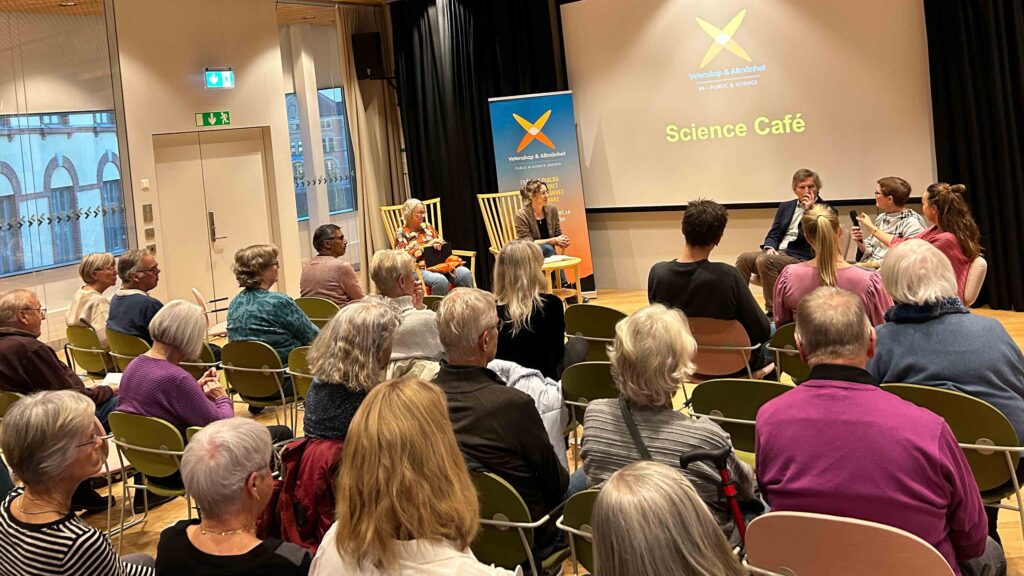
Volunteers serve multiple roles
Carina Folkesson from the voluntary organisation Frivilligcentralen in Umeå spoke about her work training volunteers in ”First aid for mental health.” The aim is to make volunteers feel confident in approaching and talking to older adults who are struggling with mental health issues, as well as to reassure and encourage them to seek appropriate professional help when necessary. Carina described the need for support for lonely older people who are not well and gave an uplifting account of the difference a volunteer can make by acting as a companion to an older person.
I am convinced that the biggest risk factor for poor health is involuntary loneliness.
”I am convinced that the biggest risk factor for poor health is involuntary loneliness,” Carina concluded. ”But you become healthier by being a volunteer, by feeling that you are still needed.”
The conversation in Umeå centred around the key question of who is truly considered ”older,” a point also emphasised by the researchers. Within the broad group of people over 65, there are significant variations, which affect both research findings and recommendations, particularly those related to physical activity.
”I want to know how you plan to divide the target groups and reach them,” said one participant. ”Whether I am 65 or 80, it makes a huge difference.”
In a closing comment to the researchers, they were invited to visit one of the participant’s care home, where physical activity was in demand.
”If you are looking for people to be involved in your research, you can come to us!”
